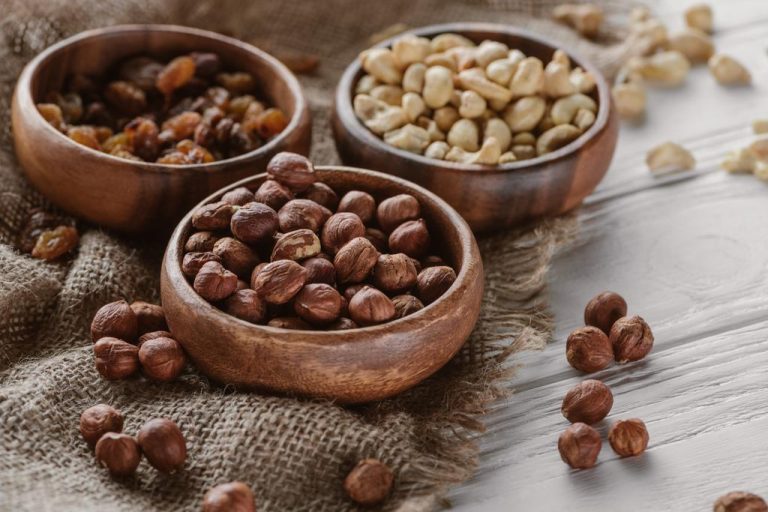You can also get enough protein from plant-based products. We show you healthy plant-based foods that you can use to add high-quality protein to your diet to meet even the needs of an athlete.
Plant-based foods high in protein: legumes, seeds and nuts
Although whole grain products and some types of vegetables and fruit are good sources of plant-based protein, legumes, seeds and nuts are particularly rich in protein. Nuts also contain healthy fats, which are often neglected in today’s diet:
Nuts: Walnuts and hazelnuts are about 16 percent protein, and peanuts even contain almost 30 percent. Since nuts are very high in fat, you should still not eat more than a handful a day.
Legumes: Legumes contain slightly less protein. On average, these contain about 7 percent protein. Kidney beans contain almost 8 grams of protein per 100 grams, raw peas and lentils about 5 grams and soybeans as much as 12 grams of protein. Since legumes fill you up well and are low in calories, you can eat them often.
Seeds: Seeds also contain a lot of protein. Both flaxseed and sesame are more than 20 percent protein. Sunflower seeds provide 26 grams of protein per 100 grams, pumpkin seeds even 36 grams. Mixed into the salad or baked in bread, you can easily increase your protein intake with seeds.
Protein powder: dietary supplement made from plant-based foods
If you cannot cover your protein requirements with nuts, seeds and legumes alone, you can also use plant-based protein powders. This makes sense if you are allergic to nuts, soy or legumes or have a particularly high protein requirement, for example because you do competitive sports.
Hemp Protein: A concentrated source of protein in powder form is hemp protein. This dietary supplement is gluten-free, contains neither soy nor nuts or legumes and is therefore compatible with almost everyone. With just under 50 grams of protein per 100 grams, the protein content is comparatively low for a protein concentrate.
Rice protein: Rice protein is also free from common allergens. It contains about 80 percent protein.
Other varieties: If you look around for vegan protein powders, you will also find soy protein or pea protein as well as protein blends from various plant-based protein sources.
You have to find out for yourself which protein powder you tolerate best. In any case, we recommend that you first increase your protein intake with the foods mentioned at the beginning. Protein powders can supplement a balanced diet if necessary, but cannot replace it.
In addition to legumes, seeds and nuts, soy-based products are also rich in proteins. This includes tofu as well as soy yoghurt or soy milk. In another article we will explain how soy affects the environment and whether you can use soy products with a clear conscience.

